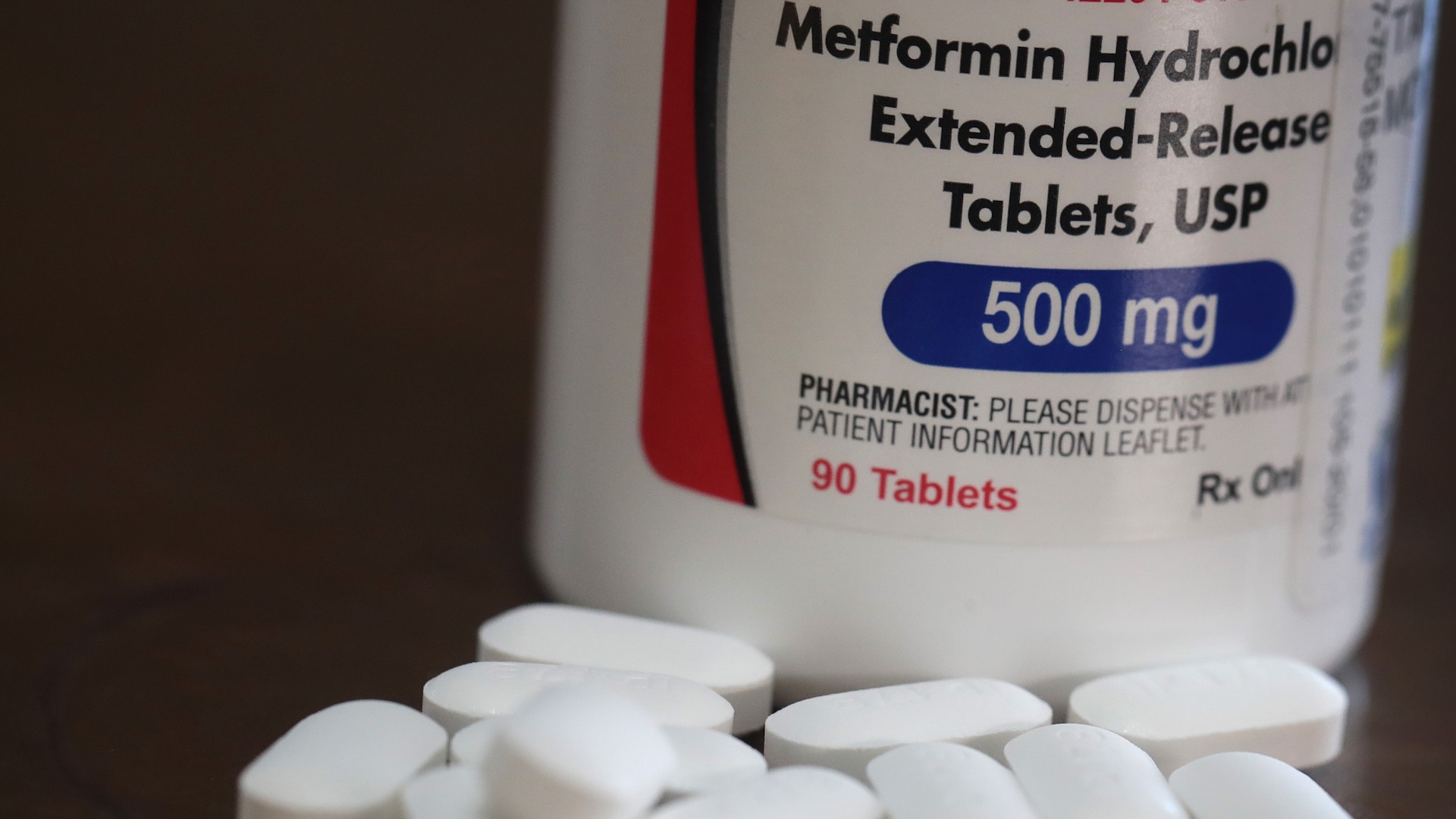Metformin may prevent severe morning sickness
Taking the diabetes drug metformin before pregnancy may reduce the risk of debilitating morning sickness by 70%, early data hint. But a clinical trial is still needed to confirm this finding.

Get the world’s most fascinating discoveries delivered straight to your inbox.
You are now subscribed
Your newsletter sign-up was successful
Want to add more newsletters?

Delivered Daily
Daily Newsletter
Sign up for the latest discoveries, groundbreaking research and fascinating breakthroughs that impact you and the wider world direct to your inbox.

Once a week
Life's Little Mysteries
Feed your curiosity with an exclusive mystery every week, solved with science and delivered direct to your inbox before it's seen anywhere else.

Once a week
How It Works
Sign up to our free science & technology newsletter for your weekly fix of fascinating articles, quick quizzes, amazing images, and more

Delivered daily
Space.com Newsletter
Breaking space news, the latest updates on rocket launches, skywatching events and more!

Once a month
Watch This Space
Sign up to our monthly entertainment newsletter to keep up with all our coverage of the latest sci-fi and space movies, tv shows, games and books.

Once a week
Night Sky This Week
Discover this week's must-see night sky events, moon phases, and stunning astrophotos. Sign up for our skywatching newsletter and explore the universe with us!
Join the club
Get full access to premium articles, exclusive features and a growing list of member rewards.
Early data hint that the common diabetes drug metformin may greatly reduce the risk of a severe form of morning sickness that affects thousands of pregnant people each year.
This form of morning sickness — called hyperemesis gravidarum (HG), or hyperemesis — can lead to complications during pregnancy, such as weight loss, dehydration and electrolyte imbalance, as well as long-term health issues for both mother and baby. It's also common for people who had hyperemesis in their first pregnancy to experience it again in subsequent pregnancies.
Previous research had established that people who are genetically predisposed to hyperemesis often have lower levels of a hormone called "growth and differentiation factor 15" (GDF15) prior to pregnancy. During pregnancy, the placenta makes GDF15, which is beneficial to the survival and growth of the fetus. Having low pre-pregnancy GDF15, the theory goes, makes individuals more sensitive to the hormone's rapid rise in pregnancy, triggering extreme nausea and vomiting.
Meanwhile, metformin, a drug commonly used to treat type 2 diabetes, is known to raise levels of GDF15 in all users, and this is thought to reduce appetite and promote weight loss. Knowing this link to GDF15, researchers explored whether metformin could "train" the body to tolerate the hormone before pregnancy.
Their survey-based study, published June 27 in the American Journal of Obstetrics and Gynecology, showed that when taken before pregnancy, metformin reduced the risk of hyperemesis by more than 70%.
If confirmed through further studies, this approach to hyperemesis prevention "would be a game changer," said Dr. Andrew Housholder, an emergency physician specializing in hyperemesis who was not involved in the study.
Related: We may finally understand how metformin lowers blood sugar, animal study finds
Get the world’s most fascinating discoveries delivered straight to your inbox.
"HG patients often change their family planning due to the severity of their illness with prior pregnancies," Housholder told Live Science in an email. "Allowing a person to have a normal pregnancy, without the severe symptoms and weight loss, is very meaningful."
For the study, researchers recruited more than 5,400 participants who visited the Hyperemesis Gravidarum Education and Research Foundation's social media platforms. These people were asked to fill in an online questionnaire. Respondents reported their daily use of 32 common substances, including prescribed medications and recreational drugs, in the month before each pregnancy, along with their level of nausea and vomiting during pregnancy.
Metformin use before pregnancy was linked to a more than 70% reduction in the risk of hyperemesis in first pregnancies and an 82% risk reduction in second pregnancies, the survey suggested. Additionally, tobacco use before pregnancy was associated with a 49% lower risk of experiencing hyperemesis — although the drug of course ups the risk of other serious pregnancy complications.
In contrast, pre-pregnancy use of selective serotonin reuptake inhibitors (SSRIs), a common class of antidepressants, was associated with increased risk of hyperemesis in both first and second pregnancies. Cannabis use was associated with increased risk in only second pregnancies.
"The large reduction in risk [tied to metformin] identified provides strong evidence to support that pre pregnancy metformin treatment can provide a benefit," study co-author Marlena Fejzo, a medical scientist at the Keck School of Medicine of the University of Southern California, told Live Science in an email.
While the findings are promising, they are based on self-reported data in a highly selective population, noted Dr. Stephen O'Rahilly, a professor of clinical biochemistry and medicine at the University of Cambridge in the U.K. who was not involved in the study. A clinical trial is now needed to confirm whether prescribing metformin before pregnancy could effectively prevent hyperemesis, O'Rahilly told Live Science in an email.
Clinical trials will also need to measure how the dose of metformin and timing of administration impacts outcomes, study co-author Dr. Aimee Brecht-Doscher, an OB/GYN physician at Ventura County Health Care Agency in California, told Live Science in an email.
Metformin is safe to take during pregnancy and many users take it throughout pregnancy to treat diabetes, Brett-Doscher noted. But notably, the study didn't look at what effect the drug might have on morning sickness at that juncture or how many participants went off the medication post-conception.
For people who don't already take metformin prior to pregnancy, it may be that the drug would come too late to help stave off hyperemesis. However, it could theoretically be used to prevent hyperemesis in subsequent pregnancies. But again, this would need to be confirmed in trials.
"Women who've had HG once are likely to have it again," Brecht-Doscher said. "Many, having been traumatized by the experience, decide they'll never again get pregnant. Using metformin to reduce the chances of a recurrence could give them more options."
"This study clears the way for clinical trials, because we've shown it's worth pursuing," she added.
This article is for informational purposes only and is not meant to offer medical advice.

Clarissa Brincat is a freelance writer specializing in health and medical research. After completing an MSc in chemistry, she realized she would rather write about science than do it. She learned how to edit scientific papers in a stint as a chemistry copyeditor, before moving on to a medical writer role at a healthcare company. Writing for doctors and experts has its rewards, but Clarissa wanted to communicate with a wider audience, which naturally led her to freelance health and science writing. Her work has also appeared in Medscape, HealthCentral and Medical News Today.
You must confirm your public display name before commenting
Please logout and then login again, you will then be prompted to enter your display name.
 Live Science Plus
Live Science Plus










